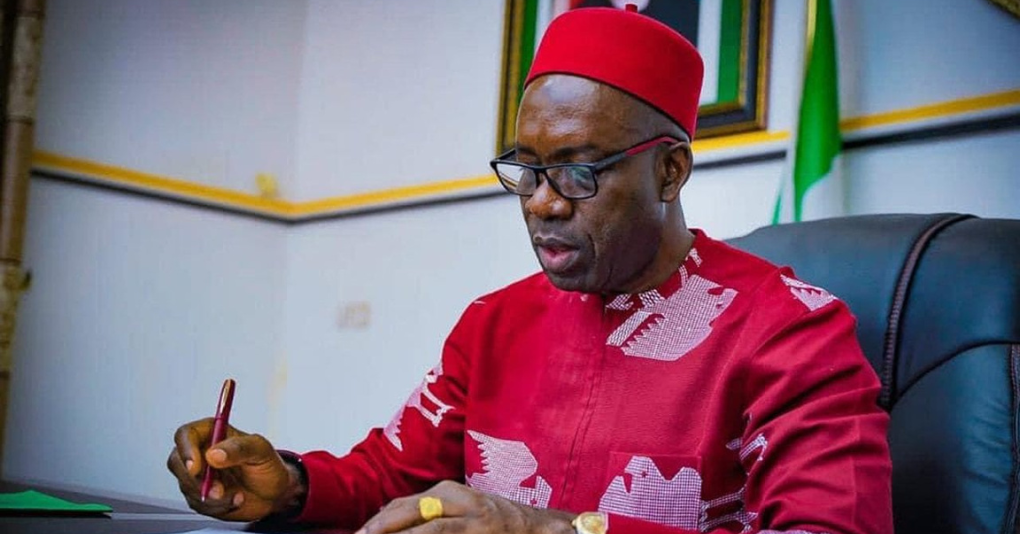The Federal Government, through the Tertiary Education Trust Fund (TETFund), has set aside N25 billion for the upgrade of equipment in laboratories and workshops in public universities, polytechnics, and colleges of education (technical) in the country.
The Executive Secretary of TETFund, Arc. Sonny Echono made this known on Tuesday in Abuja when the TETFund ad hoc Committee on Equipment Upgrade in Workshops and Laboratories submitted its report to the Minister of Education, Professor Mamman Tahir.
Echono disclosed that President Bola Ahmed Tinubu had approved the N25 billion in the Fund’s 2024 budget to be invested in the upgrade of obsolete equipment in laboratories and workshops of tertiary institutions across the country.
He noted that over the years, the focus of the intervention agency had been on infrastructure development and academic staff training, to the neglect of laboratories and workshops that would enhance quality and enable the conduct of cutting-edge research.
He said: “Based on President Bola Tinubu’s charge to the education sector and on the desire to use the sector as the springboard for improving and growing our national economy, we undertook an assessment of what the requirements are to meet that charge.
“One of the things we discovered was that we have been addressing issues around access and providing infrastructure to facilitate the admission of Nigerians to undertake programmes in our tertiary institutions.
“And over time, due to our poor maintenance culture, we have tended to neglect the issue of quality in terms of the equipment that we have in our laboratories, whether they are functional or the kind of workshops we must support productive work in terms of hands-on training, things like welding, fabrication, and so on.
“So, in this year’s budget, Mr President approved that we should start with N25 billion to invest in the upgrade of these facilities in our tertiary institutions. We constituted the committee to go around all the schools, not just to focus on this year’s intervention but to give us a kind of roadmap that, starting with this year, outlines what we are going to do and, on a sustainable basis, where we need to put our investment in the next five years, for example.
“In the committee report, you will see what we need to do immediately and how we will sustain it, and in addition, they are even talking about staffing, the quality of staff, and their training, particularly the technical staff that would be able to manage and run the equipment.
“We also observed that we are spending too thinly, so we are trying to promote specialisation; areas where polytechnics have a comparative advantage, we will get them to focus on those areas and produce the type of quality graduates that would be globally competitive and can work anywhere because they have been exposed to the right equipment or instrument that would enable them to even outsource jobs and be able to work remotely on behalf of international business concerns, and so forth.
“So, this focus is on quality, and it’s for our institutions to be able to meet their mandates in promoting cutting-edge research and be able to produce graduates that are grounded in the hands-on mode of things.
“One of the key things we are emphasising is that we must have constant power around our laboratories and workshops. So, embedded in it is the energy mix: that we must have sustainable power; when the power goes off, we need a support system, an alternative power supply that will guarantee that we have 24-hour power, which is also incorporated into this programme.
“Now that we have received the report, it will now guide our intervention, the allocation this year, and the subsequent ones,” he stated.
The TETFund boss also revealed that President Tinubu approved another N5 billion for skills-related equipment in workshops for only polytechnics.
He said the Fund has accordingly asked polytechnics to identify at least five skill areas where the government could provide equipment for them to enable them to become more relevant to the communities in terms of community service.
He particularly noted that the desire of the government is to use the polytechnics as skills development centres, where people would be mopped up from the streets and taught basic skills for them to be able to fend for themselves and contribute to the nation’s economy.
He said this would also drive the youth away from being recruited as ‘yahoo yahoo boys’ and other criminal tendencies.
“We created partnerships between the polytechnics and the organised trade groups. For example, there is a strong partnership between the Kaduna Polytechnic and Pantaker in Kaduna, and between Yaba College of Technology and Computer Village in Lagos, and what they are doing basically is providing an intellectual foundation, the resource base, and also helping these young men and women by linking them and getting them to do legitimate jobs,” he said.
Chairman of the TETFund ad hoc Committee on Equipment Upgrade in Workshops and Laboratories, Prof. Hayward Mafuyai, while submitting the report, said what the committee found in most of the tertiary institutions visited was very disturbing.
He said the TETFUND intervention was timely, noting that in most of the institutions, the equipment was obsolete, faulty, and non-functional.
“We saw equipment in some laboratories that were from 1917, some others from 1927. You will always agree with me that such equipment can best be in a museum in the institution to teach them the history of that particular equipment.
“But the current administration is now poised to provide them with modern equipment that can put them on par and make them competitive both regionally in Africa and internationally,” he said.
Share this post





Be the first to comment on this post